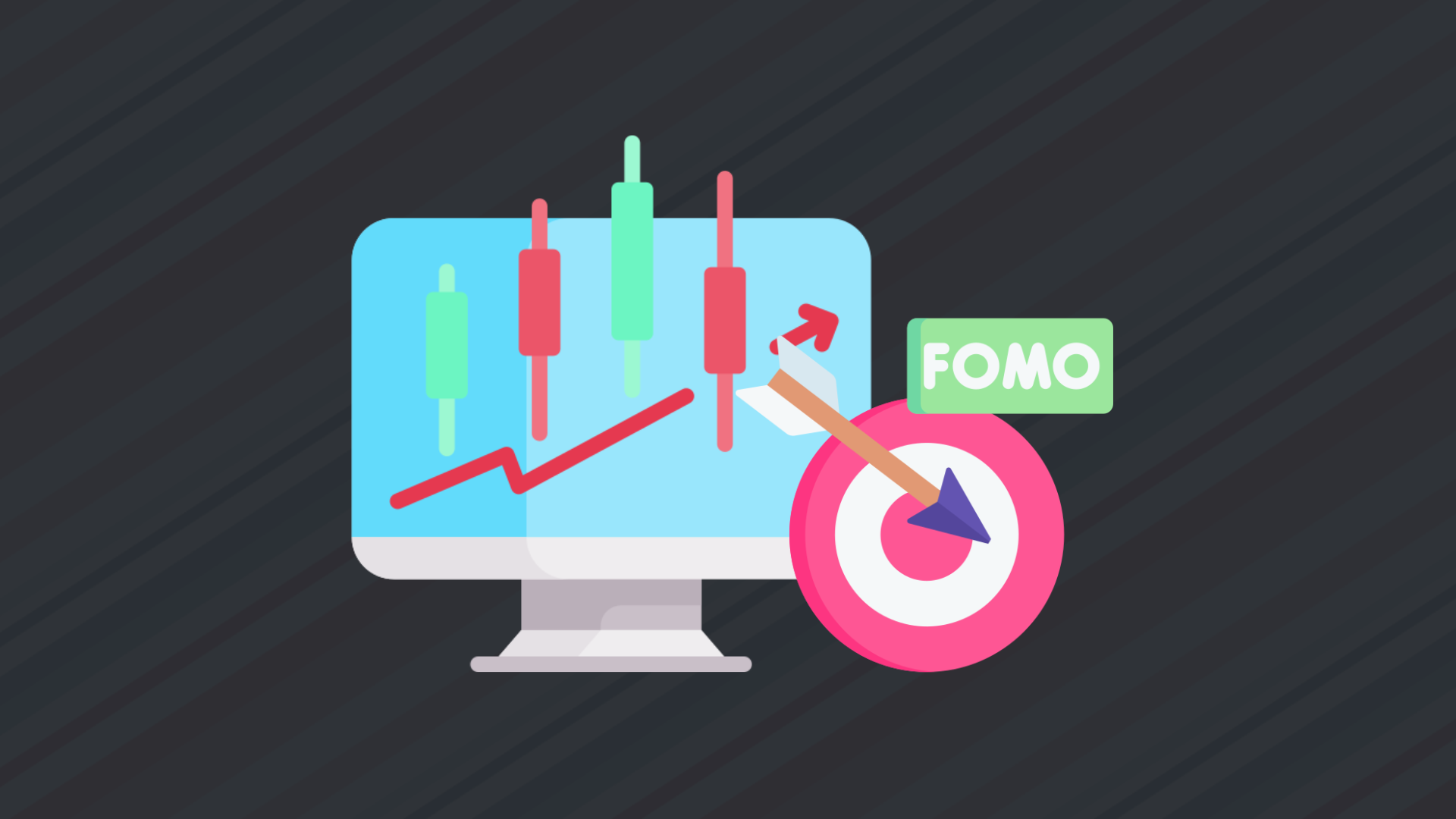Hype and Fear: The Emotional Forces Driving Volatility
Explore how hype-driven FoMO and fear-driven FUD fuel crypto market volatility. Learn their psychological triggers, risks and strategies to make healthier investment decisions.

Disclaimer: This article is for informational purposes only and does not constitute investment advice. You should always consult a qualified financial advisor before making any investment decisions.
In Sum
- FoMO drives impulsive crypto buying, often without due diligence, fuelled by social media hype, viral success stories and market volatility—it can lead to buying at peak prices and incurring heavy losses when corrections occur.
- The most affected by FoMO are younger investors, especially Gen Z and crypto traders, with impulsive behavior reinforced by market volatility, herd mentality and targeted ads.
- FUD often follows FoMO, prompting panic selling at low prices—together, these emotional forces amplify market volatility, facilitate scams like pump-and-dump schemes and damage the crypto community’s reputation.
- Mitigation strategies include financial education, awareness of market cycles and biases, and practicing due diligence to counter hype and fear-driven decisions.
FoMO, or the fear of missing out, is a psychological phenomenon exacerbated by the ubiquity of information available in today's social media age, where one feels anxious about the idea that others are having experiences from which one is absent.
While FoMO can affect many areas of one’s life, this article focuses on the fear of missing out on cryptocurrencies—and the potential monetary gains they promise—as a risky motivator for making purchases. We also examine, at the other end of the FoMO cycle, the fear, the uncertainty and the doubt (FUD) which further entrenches market volatility. We take a look at the impacts of emotionally-driven decision-making in the cryptocurrency world and we consider ways to limit them.
The Fear of Missing Out Defined
The fear of missing out is a social and emotional force stemming from the human desire not to be left behind. In financial markets, FoMO has been recognized as a driver of speculative bubbles and herd behaviour. Investors buy certain assets because others have profited from them, neglecting due diligence and other good investment reflexes by fear of losing out on a good opportunity to make money.
FoMO is closely tied to the cycle of hype and speculation.
Fear of Missing Out in Action
While we focus within the scope of this article on FoMO in crypto investing, this phenomenon is far from unique to cryptoassets or even to this time in history—though social media certainly heightens the feeling of being left out. The gold rushes of the 19th century are an example of FoMO at play.
More recently, this year, gold prices have significantly risen with increased demand amidst U.S. and China trade tensions, continuously reaching new heights. Though it is usual that people tend to rush into buying gold during unsteady times, as it is a known safe-haven asset, rising prices contribute to create an even more pressing sense of urgency in individuals driven by the fear of missing the opportunity of buying gold at a lower price.
This in turn reinforces the overall sense of urgency, and more demand arises from it. Those who enter the gold market at its highest price with the expectation that prices will keep rising will have ended up losing significant value once an event triggering a price correction happens. In the case of the gold price surge of March 2025, a trade agreement including major tariff cuts between the U.S. and China significantly brought down gold prices.
Alternatively, fear of missing out inhibits the good investing reflexes of verifying claims and practicing due diligence. When a false report was posted on social media that Blackrock had approved Spot Bitcoin ETFs, people rushed to buy bitcoin ahead of an expected surge. Prices rose indeed, until Blackrock confirmed the rumor to be false and an apology from the cryptocurrency publication was issued. The price of bitcoin subsequently fell.
Those who did not waste time purchasing bitcoin following the false report were likely similarly attempting to buy at the lowest price possible in order to ride the significant price increase they believed the news would bring—their intuition was right to some extent, given that the bitcoin price significantly went up following the sharing of the false report. Yet, acting without verifying the claim ended up being costly for many. Some bought at peak prices, only to watch everything unravel once the rumors were disproven.
Who Is Most Affected by the Fear of Missing Out
While fear of missing out is a phenomenon that has existed throughout history, currently, those who are most affected by the fear of missing out are younger individuals aged 18 to 35. Around 41% of Gen Z investors—born between 1997 and 2012—self-reportedly started investing due to a fear of missing out.
On the other hand, compared to stock owners, cryptocurrency owners are more likely to be affected by FoMO.
What Exacerbates the Fear of Missing Out
FoMO is exacerbated by multiple factors present within the cryptocurrency community and our modern tech-driven society at large. Many success stories linked to early bitcoin adopters making extraordinary profits are given wide exposure on the Internet. A desire to discover the next moneymaking cryptocurrency drives people to seize the opportunity and buy cryptocurrencies with little to no value or purpose, in the hopes of them making it big one day.
Indeed, social media was shown to have a strong influence on impulsive decision-making when it comes to cryptocurrency trading. Viral stories shared on the Internet are given access to the minds of millions around the world, often accompanied with encouragement to buy. Crypto influencers set trends which many follow by fear of missing out on something that could prove to be profitable.
FoMO can be viewed through the lens of social learning theory, a theory in psychology formulated by Albert Bandura, describing how individuals learn behaviours from observing others’ actions as well as their consequences.
Targeted ads for digital currencies and crypto exchanges in the past have additionally contributed by using urgency-charged wording, though stricter regulations now govern cryptocurrency marketing.
Market volatility is another contributing factor to FoMO. With how quickly prices rise and fall in the cryptocurrency world, there is an inherent sense of urgency underlying transactions.
Impacts of the Fear of Missing Out
FoMO has a profound impact on both individual members of the crypto community and the ecosystem as a whole, triggering a cycle of emotionally-driven decisions.
Buying Based on the Fear of Missing Out
A study has found that newer investors influenced by the fear of missing out tend to opt-in because many investors have already invested. They therefore feel the need to participate in these investment activities. FoMO-driven investors are shown to not conduct thorough research, instead relying on tips found online as well as the crowd sentiment. This increases the risk of always buying at peak prices, which is detrimental to a sustainable investment strategy.
Crypto Market Volatility
Conversely, volatility in the crypto market is often intensified by investor behavior driven by the fear of missing out (FoMO). When this urgency to act takes hold, it reinforces itself—amplifying momentum and driving prices sharply upward. The fact that crypto markets are open 24 hours a day magnify this phenomenon.
Scam Facilitation
Scammers play on some individuals’ fear of missing out in order to manipulate them into investing, through pump-and-dump schemes where deceitful actors artificially inflate the price of a cryptocurrency and then quickly sell off their holdings at their peak, leaving other investors with losses. A report showed that 98.7% of tokens on Pump.fun, a Solana-based platform that simplifies the process of creating and trading meme tokens, have exhibited characteristics of pump-and-dump schemes or rug pulls.
Reputational Harm
The facilitation and proliferation of scams have severely damaged the reputation of the cryptocurrency community, with FoMO-driven behavior and accompanying loss of investment further amplifying distrust and skepticism in cryptocurrency.
Emotional Harm
On a more personal level, market volatility and significant loss caused by the fear of missing out has been associated with heightened anxiety and depressive symptoms which can lead in the long run to chronic anxiety and major depressive disorder.
Fear, Uncertainty and Doubt
While hype and urgency push some investors to purchase at increasing prices, they can quickly get swayed by fear, uncertainty and doubt (FUD) once the asset is not doing as well as it previously was. This marks the onset of the second phase of the FoMO cycle.
At the Opposite of the Spectrum: Fear, Uncertainty and Doubt
While these risk-averse emotions can lead to behaviours that prevent impulsive decision-making, like researching an asset before buying in, these emotions often come too late in the vicious cycle caused by FoMO. Working similarly to the prior phenomenon, FUD leads to impulsive decision-making that may negatively affect one’s financial health.
Selling Based on Fear, Uncertainty and Doubt
Traders driven by FoMO tend to buy assets at high prices. When an event triggers a fall in price, they are likely to exhibit the same thought pattern and have the panic-driven urge to sell at the highest possible price before it becomes too low, often suffering losses in the process given that they bought the cryptocurrency at peak prices.
Buying high and selling low is a dangerous investment strategy driven by hype and panic. Short-term crypto investors in particular tend to react quickly to adverse events as they prioritize short-term revenue. In the long-term, this is likely to decrease potential profits.
Crypto Market Volatility
Panic selling, like panic buying, creates steep upturns and abrupt downturns which translate into the extreme volatility that has become characteristic of cryptocurrency—though it appears that mitigating FoMO and FUD could help stabilize that.

Limiting the Impacts of FoMO and FUD
Limiting the impacts of fear of missing out as well as fear, uncertainty and doubt could contribute to stabilizing the cryptocurrency market, as well as the financial well-being of individual investors who struggle with impulsive buying and selling.
The Importance of Financial Education and Literacy
Financial education and crypto literacy are important skills to acquire for one’s financial health. Understanding concepts like risk appetites and value investing may mitigate the impact of emotions on one’s reaction to market movements. Enriching one’s financial or crypto literacy helps ensure decisions are made with clarity and discipline—maximizing the potential for success, even while acknowledging that all investments carry inherent risks.
The Cyclical Nature of Markets
Part of financial education involves the understanding that markets are cyclical. It is the key principle behind the “buy low, sell high” strategy, which runs entirely counter to the instincts that push the FoMO and FUD cycles forward.
The “buy low, sell high” strategy involves buying an (already well-researched) asset when its price is low and selling it when its performance peaks. Going against the market current in such a way constitutes a way to potentially maximize profits in the long run, whereas following market trends—buying high and selling low—is a strategy which exposes investors to loss.
For example, those who bought bitcoin at peak price, have likely seen their investment go down in value—at least until bitcoin reaches a new record price. Alternatively, an investor following the “buy low, sell high” strategy and having purchased bitcoin at a low price is likely to have since seen their holdings appreciate, yielding profits. Of course, no one can time the market in such a way to avoid 100% of losses.
Cognitive Biases Awareness
Additionally, being aware of common cognitive biases related to investing can help individuals limit the impacts of the emotions and slanted thoughts that power their decision-making process. Fear of missing out is only one of many cognitive biases among many psychological phenomena shaping financial decision-making, including reference point bias, illusion of control bias or familiarity bias to only name a few.
The Practice of Due Diligence
It is important to use the Internet to one’s advantage when investing in any kind of asset. Cryptocurrency, compared to stocks or other investment vehicles from, is new, generally uninsured and less comprehensively regulated—researching cryptocurrency is all the more important, as it is quite complex. Scams are prevalent in the crypto and in the online space, and researching any company one chooses to do business with is a primordial step before taking any actions. Understanding the risks that come with investing is additionally important.
In conclusion, cognitive biases like the fear of missing out (FoMO) and fear, uncertainty and doubt (FUD) contribute to market volatility to the detriment of investors’ well-being. Limiting the negative effects of FoMO and FUD starts with financial education. Additionally, being more cognizant of the biases that may affect one’s thoughts when it comes to investing in cryptocurrency or other kinds of assets, enables one to make better decisions.
Frequently Asked Questions
What is FoMO in crypto investing?
FoMO (Fear of Missing Out) is the urge to buy an asset quickly because others seem to be profiting from it. In crypto, it often leads to impulsive decisions without research, driven by hype and rapid price changes.
What is FUD and how is it related to FoMO?
FUD (Fear, Uncertainty and Doubt) is the panic that follows FoMO. When prices drop, investors rush to sell—often at a loss—intensifying volatility.
How can investors reduce the impacts of FoMO and FUD?
Learning about market cycles, recognizing cognitive biases, researching before buying and sticking to long-term strategies instead of reacting to short-term swings can reduce the impacts of FoMO and FUD.









